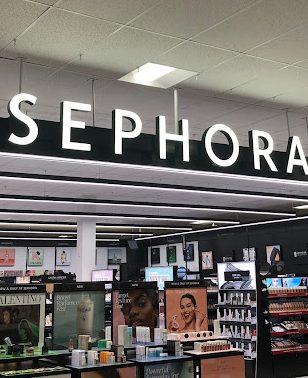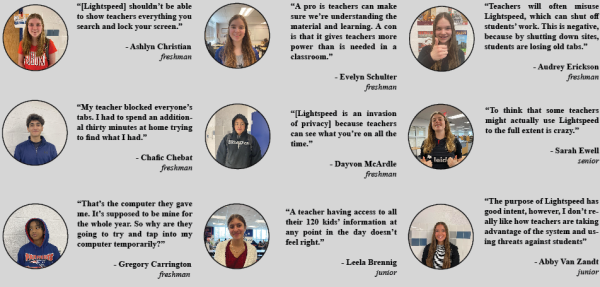Why the term ‘LGBTQIA+’ can actually be ostracizing

Photo courtesy of FreeIMG under Creative Commons License
Senior Robin shares a message: “Even though it might seem scary to be LGBTQIA+ right now especially with anti-LGBTQIA+ laws being pushed, no one can ever erase you.”
LGBTQIA+ is an initialism created to embody the very essence of acceptance and inclusivity, yet the catch-all term may be doing the exact opposite.
“Identifying as part of the LGBTQ[IA+] community, to me, means belonging to a community/group that is kind of almost always discovering themselves,” shared senior Robin (who prefers to remain anonymous). “I was telling my friend that being LGBTQ[IA+] is [like] an onion, because once you finally figure out that you are LGBTQ[IA+], there [are] so many more layers of self-discovery.”
The term LGBTQIA+ stands for Lesbian, Gay, Bisexual, Transgender, Queer or Questioning, Intersex, and Asexual or Agender. The plus serves to further include any and all identities while also shortening the long abbreviation.
But sometimes, because the term clumps together every identity other than cisgender and heterosexual under one umbrella, it can become just another label that creates an ‘other’ mentality. When an entire community of exhaustively diverse peoples with idiosyncratic stories and life experiences is dismissed with a single abbreviation, this label can be alienating rather than inclusive.
“I do not believe the term of LGBTQ[IA]+ is adequate enough for me because I don’t identify as LGBTQ[IA]+, I identify as lesbian,” explained senior Rebekah Corbin. “I am—nor is anyone in the community—not just one broad term. I have parts to a whole.”
Merely referring to an individual as a member of the LGBTQIA+ community diminishes the value of their individual identity.
“I would have to dispute that the community has an inherent meaning,” noted senior Mimi Deliee. “The idea that we have, in general, a kind of concept, a meaning, a unified goal is fallacious, I would say. In a lot of ways, we’re more like a support network than a focused group with a straightforward goal.”
Although the term LGBTQIA+ may be the desired phrase of reference for an individual, some feel underrepresented and bunched together under yet another umbrella that furthers this division of mainstream identity/society and the others as LGBTQIA+.
“For me,” countered Robin, “I feel the term is pretty inclusive [rather] than alienating. When I hear the term LGBTQIA+ my first thought is usually inclusivity, but I can definitely see that some people could see the term as a bit alienating.”
Preference for specific terms of identification can better help individuals connect with their identities, rather than the encompassing term LGBTQIA+.
“I much prefer the term ‘queer’ and let that and its homophobic origins—it’s meaning of ‘weird’ and ‘other’—really let us color our perspective on gender and sexuality, because, you know, it is weird,” divulged Deliee. “It’s a weird, weird concept that we need to keep exploring, keep delving, and we need to take a scalpel and go ahead and poke at the guts of it. But, that’s sort of beautiful, in a sense, that each strand is so unique.”
Sometimes, LGBTQIA+ can be used to avoid explicitly saying lesbian or queer due to discomfort with the words. These labels, however, are not offensive.
“In my experience, people treat the word lesbian as a bad word and tend to walk on eggshells around it because they think it’s offensive to use the term,” remarked Corbin. “Lesbian is not a bad word. It’s simply who I am. However, on the positive side, most queer people get very excited to hear the word, so labels can also give you a sense of identity in a community.”
In a society obsessed with ‘labels this and labels that,’ it becomes evident that they cannot be escaped. But are labels all bad?
“I like the idea of labels,” commented Robin, “because when I was discovering myself, I kinda didn’t know where I quite fit in within the term LGBTQIA+. Once I fully understood what it meant, I knew I was nonbinary, and it was super relieving. I know some people don’t like having a label, but the beauty of being LGBTQIA+ is that you don’t need a label. You just have to be yourself.”
Labels can evidently serve as avenues for self-discovery and understanding identity.
“I feel like labels can be useful when getting to learn oneself,” observed Corbin. “But they can also be demeaning when uneducated folk use them to put us down or broad brush us.”
On the other hand, labels can also easily operate as a verbal divide with societal reverberations.
“Labels are also a way for certain people to codify the [the idea of an] ‘other,’” explained Deliee. “In that way, the community has sort of accepted the language of the oppressor, so to speak, as that [the community has] accepted that to be accepted we need to have a label, so that people know who to set us up with, or what clothes to buy us, or so on and so forth.”
In the end, it is up to the individual to identify themselves however they please and for the greater society to accept all identities, akin to gorgeous pieces of one large quilt, so that all individuals may live out their distinctive identities.
“To all the straight/cisgender readers, allow yourself to be educated by those of the LGBTQ[IA]+ community, and always keep an open mind,” asserted Corbin. “We do not need you to save us, we do not need your pity, we do not need you—period. We appreciate your allyship, but please let us be who we are in peace. And to all the readers who are of the LGBTQ[IA]+ community, do your thing, and do not let people tell you how to act or who to love.”





